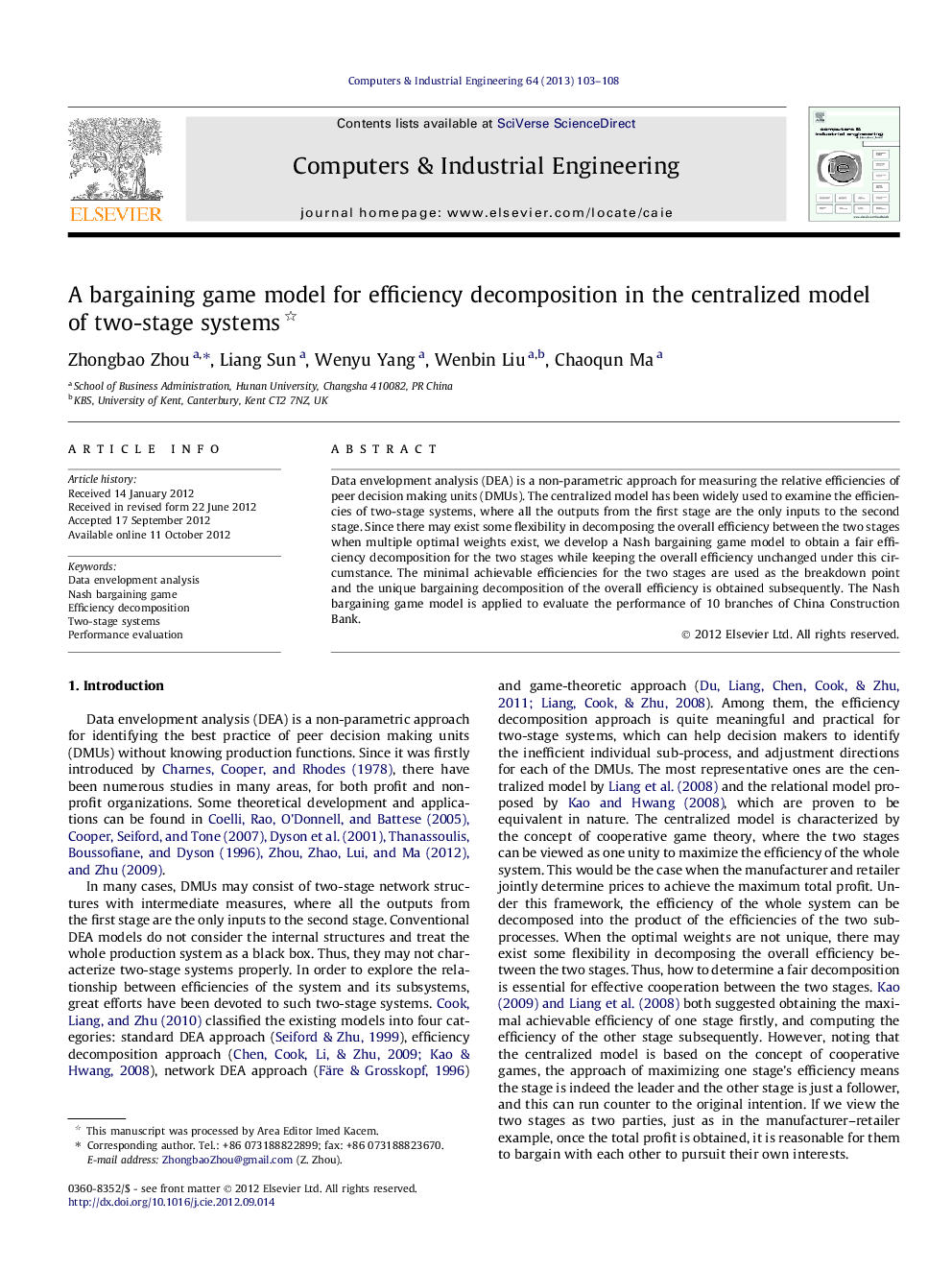| Article ID | Journal | Published Year | Pages | File Type |
|---|---|---|---|---|
| 1134078 | Computers & Industrial Engineering | 2013 | 6 Pages |
Data envelopment analysis (DEA) is a non-parametric approach for measuring the relative efficiencies of peer decision making units (DMUs). The centralized model has been widely used to examine the efficiencies of two-stage systems, where all the outputs from the first stage are the only inputs to the second stage. Since there may exist some flexibility in decomposing the overall efficiency between the two stages when multiple optimal weights exist, we develop a Nash bargaining game model to obtain a fair efficiency decomposition for the two stages while keeping the overall efficiency unchanged under this circumstance. The minimal achievable efficiencies for the two stages are used as the breakdown point and the unique bargaining decomposition of the overall efficiency is obtained subsequently. The Nash bargaining game model is applied to evaluate the performance of 10 branches of China Construction Bank.
► Efficiency decomposition may not be unique in the centralized model when multiple weights exist. ► We develop a bargaining game model for efficiency decomposition in the centralized model. ► The unique bargaining efficiencies of the two stages can be obtained. ► A banking example is analyzed to show the application of the bargaining model.
